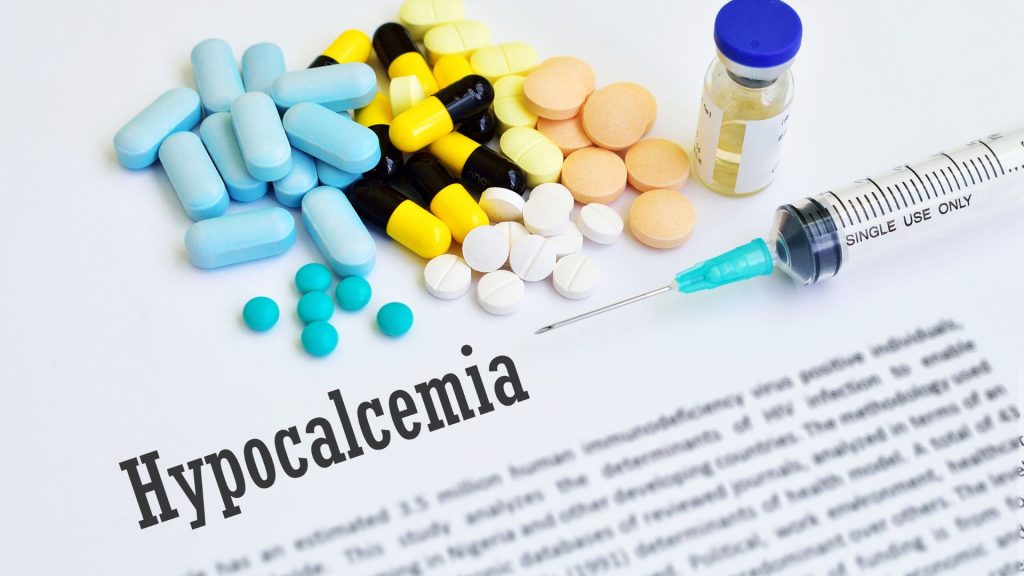All you need to know about Hypocalcemia

Introduction
Calcium is an essential mineral that plays a critical role in maintaining the health and functionality of our bodies. It is not only beneficial for strong bones and teeth but also for diverse physiological processes. These include muscle contraction, nerve communication, blood clotting, and hormone regulation. When our body fails to preserve adequate calcium levels, a condition called hypocalcemia arises, which can have noteworthy effects on our overall health.
In this blog, we will dive into the complexities of hypocalcemia, exploring its causes, symptoms, diagnosis, and remedy options. Whether you have been analysed with this condition, suspect you might have it, or simply want to learn more, this blog is for you.
Avertisement
Definition of Hypocalcemia
Hypocalcemia refers to a disorder caused by low levels of calcium in the blood. When calcium levels in the blood fall below the normal range, it can lead to a wide range of symptoms and possibly serious health outcomes.
Avertisement
Causes of Hypocalcemia
Hypocalcemia can occur due to different factors, including nutritional deficiencies, hormone imbalances, and specific medical conditions or diseases. Understanding these underlying causes is important in diagnosing and treating the condition effectively. Let’s explore each of these causalities in detail:
A. Nutritional deficiencies
Consuming a diet low in calcium-rich foods can direct to a deficiency over time. This is a typical disorder in individuals who don’t consume enough dairy products, leafy greens, or any calcium sources. It can also occur because of a lack of vitamin D as it is essential for calcium absorption. Insufficient sun baths or a diet lacking vitamin D can result in hypocalcemia. Additionally, medical conditions like celiac disease or inflammatory bowel disease can interfere with the absorption of calcium, resulting in its deficiency.
B. Hormone imbalances
The parathyroid glands produce Parathyroid Hormone, which regulates calcium levels in the body. A deficiency in PTH can disbalance calcium balance and cause hypocalcemia. Also, hormonal abnormalities or kidney dysfunction can impact the conversion of vitamin D into its active form, harming calcium absorption.
C. Medical conditions and diseases
Hypoparathyroidism is a condition that occurs when the parathyroid glands do not produce enough PTH, leading to low calcium levels. Chronic kidney disease or kidney failure can contribute to hypocalcemia. Inflammation of the pancreas can impact the release of hormones that regulate calcium levels, leading to a deficiency.
Magnesium is required for the proper functioning of parathyroid hormone, and its shortage can lead to hypocalcemia. Some medications, such as diuretics, anticonvulsants, and bisphosphonates, also interfere with calcium absorption.
It’s necessary to state that these causalities can often overlap or be interconnected. It is advised to consult with a healthcare professional to identify the specific underlying causes of hypocalcemia.
Avertisement
Recognizing the Symptoms of Hypocalcemia
Hypocalcemia can personify with a variety of signs that can be categorized into physical, neurological, emotional, and cognitive symptoms. Identifying these symptoms is important for early detection and rapid medical intervention. Let’s explore each category:
A. Physical symptoms
These symptoms can often be painful muscle contractions, particularly in the calves, thighs, or hands. Tetany or involuntary muscle spasms, twitching, or tingling sensations. Paresthesia or numbness or tingling in the extremities, such as fingers, toes, or lips. Your skin becomes dry, rough, or itchy. Along with that, you may experience brittle nails and hair loss.
B. Neurological symptoms
It is common to have seizures when your diet lacks calcium. Individuals also go through mental fog, difficulty concentrating, or memory loss. You might easily irritated or depressed for a long period. Apart from this fatigue or recurring headaches are also a sign of Hypocalcemia.
C. Emotional and cognitive symptoms
Prolonged feelings of sadness, hopelessness, or lack of interest in activities cause depression. Lack of calcium can show signs of anxiety and shifts in behaviour, irritability, or mood swings. Individuals suffering from hypocalcemia also show signs of impaired thing, poor concentration and memory loss.
Avertisement
Diagnosis of Hypocalcemia
It is very necessary to identify this condition and treat it properly. The diagnostic process may include a review of the above-stated symptoms, reviewing medical history and a physical examination.
To confirm the diagnosis, blood tests and laboratory analysis is also required where the body undergoes below tests:
- Serum calcium level: Measurement of calcium concentration in the blood.
- Ionized calcium: Assessment of the biologically active form of calcium.
- Parathyroid hormone (PTH) level: Evaluation of PTH levels to determine underlying causes.
- Vitamin D levels: Assessment of vitamin D status to identify potential deficiencies.
Avertisement
Complications and Health Risks of Hypocalcemia
Lack of calcium can lead to several complications and health risks. This can include the following:
- Reduced bone density and risk of fractures.
- Weak and brittle teeth, increased vulnerability to tooth decay.
- Recurrent epileptic seizures due to irregular electrical activity in the brain.
- Severe muscle spasms and compactions.
- Facial muscle twitching (Chvostek’s sign) and muscle spasms with hand or finger flexion (Trousseau’s sign).
- Irregular heart rhythms, palpitations, or abnormal heartbeats.
Avertisement
Treating Hypocalcemia
Treating hypocalcemia involves handling the underlying cause and managing calcium levels in the body. Treatment options include:
- Consuming calcium-rich foods such as dairy by-products, leafy greens, and fortified foods.
- Ensuring sufficient vitamin D intake for optimal calcium absorption.
- Calcium supplements can increase calcium levels.
- Calcium carbonate or calcium citrate supplements are based on individual needs.
- Parathyroid hormone (PTH) replacement therapy in cases of hypoparathyroidism.
Avertisement
Preventing Hypocalcemia
Averting hypocalcemia implicates adopting healthy habits and a balanced lifestyle. Prevention strategies include:
- Consuming calcium-rich foods regularly.
- Ensuring adequate vitamin D intake through sunlight exposure or supplementation.
- Regular exercise promotes bone health and calcium absorption.
- Avoiding excessive caffeine, alcohol, and smoking, which can affect calcium levels.
- Managing underlying conditions that contribute to hypocalcemia, such as kidney or gastrointestinal disorders.
Avertisement
Conclusion
In conclusion, hypocalcemia is a condition that has significant consequences for our health and well-being. Calcium plays a crucial role in numerous bodily functions. When its levels fall below normal, it can lead to a range of symptoms and potential complications. Remember, if you have any doubts about experiencing symptoms related to calcium deficiency, consult with a healthcare professional for proper evaluation and treatment.




Responses